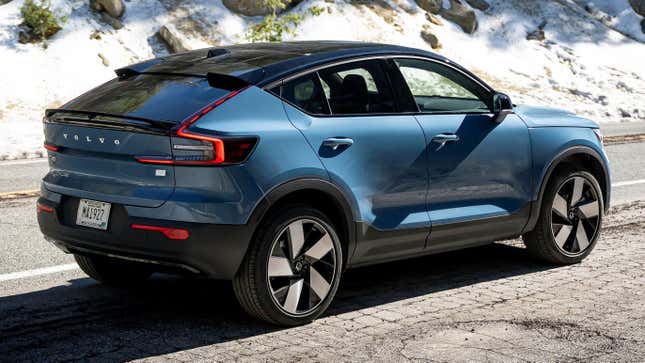
Volvo appointed a new CEO in January, who follows in the footsteps of Håkan Samuelsson, who was a a down-to-earth figure who knew what Volvo was good at and leaned into it. Samuelsson also knew what Volvo was bad at, like in 2018 when Volvo opted to get rid of its prior navigation system in favor of Google Maps. In 2019, under Samuelsson, Volvo hit a new global sales record.
Jim Rowan, Volvo’s new CEO, started this month and, if a new interview with Bloomberg is any indication, will be a very different kind of CEO than Samuelsson. Take, for example, the following answer, when Rowan was asked what he talked about with the board before being named to the job.
When I first engaged with the board, it was around the challenges Volvo faces going forward. We have a fantastic company in terms of automotive — almost 42,000 people in the company, and the vast majority of those people come from an automotive background and have been working in the industry for decades.
So we have that covered, and the thinking was that as the industry goes through this massive transformation — partly, it’s electrification, but that’s really the easiest part, if I’m being honest. The bigger part of the transformation is really going to be about software and core compute. That technology will be harnessed to drive next-generation active safety systems — so Lidar, radar, cameras, and obviously the software stack that enables that.
The actual software on the vehicle itself becomes a much bigger component of the value proposition. They were looking for somebody who came from a consumer-electronic background, who had worked at a very fast cadence, who could blend that with all the skills we already have in automotive, and hopefully we get that kind of synergy effect, where one-and-one equals more than two.
[...]
We’re going to have to be a lot more intelligent about the decisions we make around making versus buying software, and we’re going to need to understand software at a much more vestral level than before.
That doesn’t mean that we need to do every single software stack, but we need to be able to control how we interact with suppliers and build that final product, that interface we’re looking for.
“Volvo is a fantastic car company but it also needs to be a tech company” is the kind of thing that the CEO of a much bigger automaker might say and still have trouble getting people to believe it, because the best software engineers in the world don’t work for automakers, they work for, you know, Google. That Volvo’s CEO thinks that his small car company can be different is, well, hmm.
Rowan is also the kind of person in the industry who says that sooner or later cars will simply be smartphones on wheels, suggesting he might not understand smartphones or wheels.
“A vehicle is a vehicle, but what we’re going to do in the journey that we’re on is to make so much technology available in that vehicle that it massively expands the use of that next-generation mobility,” Rowan said. “All the stuff that you can do in your smartphone will be almost inherently native within the vehicle.”
If this were a game of meaningless-corporate-speak bingo, we’d be off to the races already with “synergy” and “mobility,” and possibly even “vestral,” too, if anyone can find out what that word means. Possibly this is all just entrance interview type stuff, too, since Rowan doesn’t have a background in cars, having previously been the CEO of “a world leader in precise temperature control,” and also Dyson, which makes vacuum cleaners and had its own failed EV project.
And possibly giving boilerplate answers is the point, as it is for most CEO types, though that isn’t what Volvo has been for the past several years, nor what led to its revival under Geely’s ownership. What Volvo has been, under Samuelsson, is: slow, steady, solid growth. Not trying to do too much. Focusing on building good cars, and trying to be responsible with the semi-autonomous crap. Volvo knows it will probably never beat Mercedes or BMW, but it’s not trying to, and that is its appeal. I’m hoping by sheer inertia things stay that way.